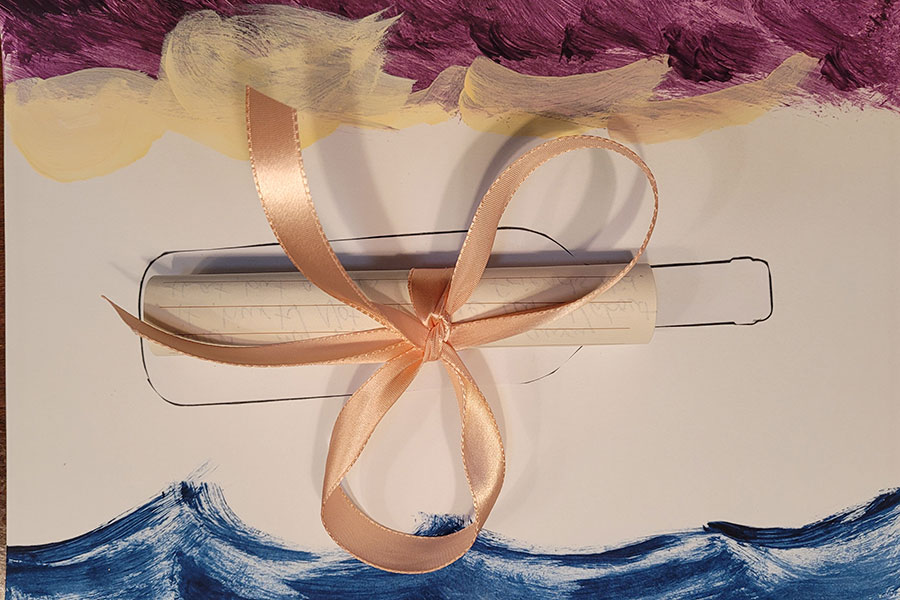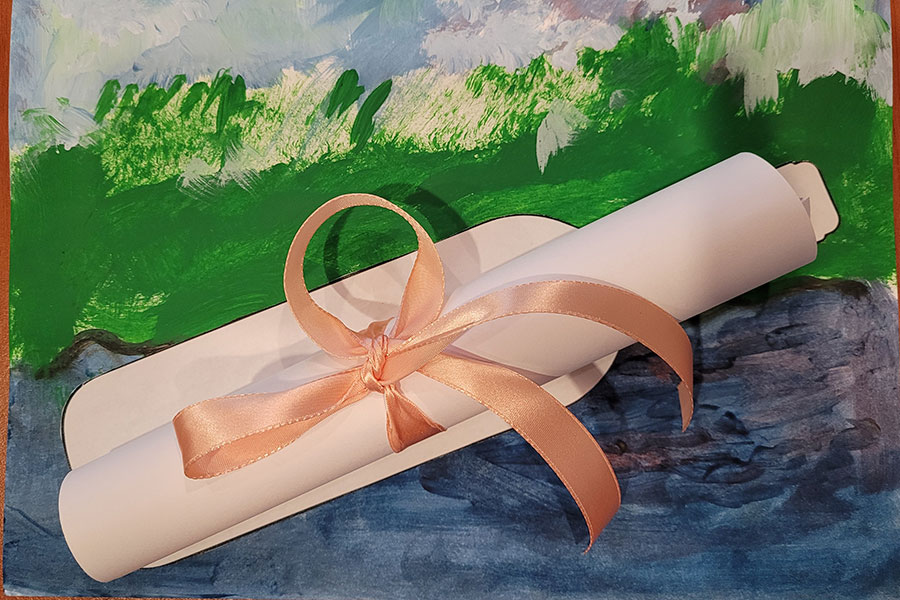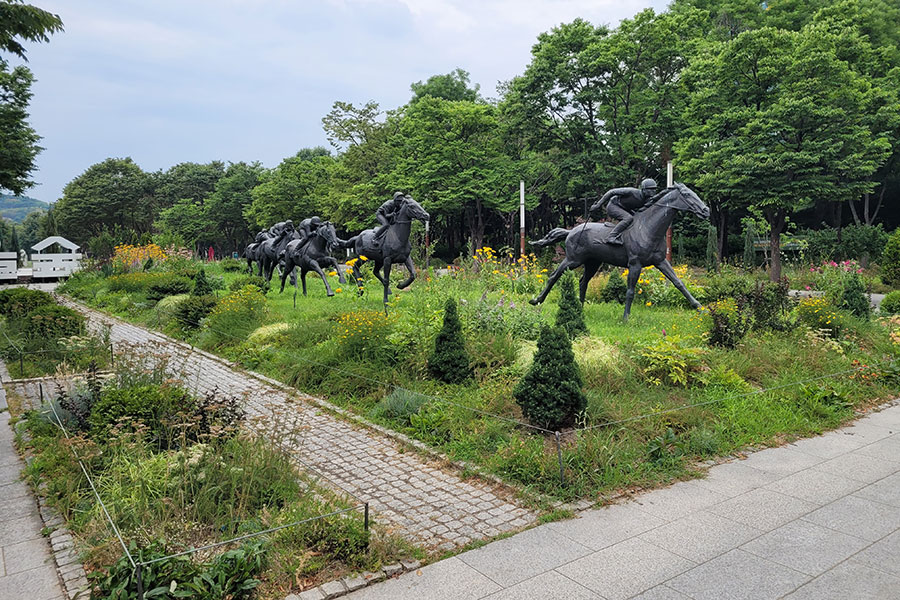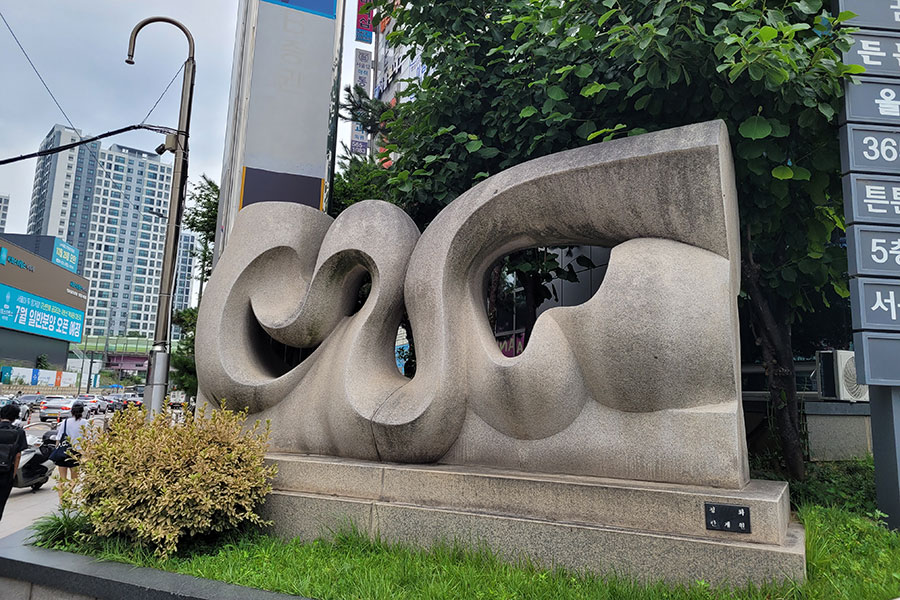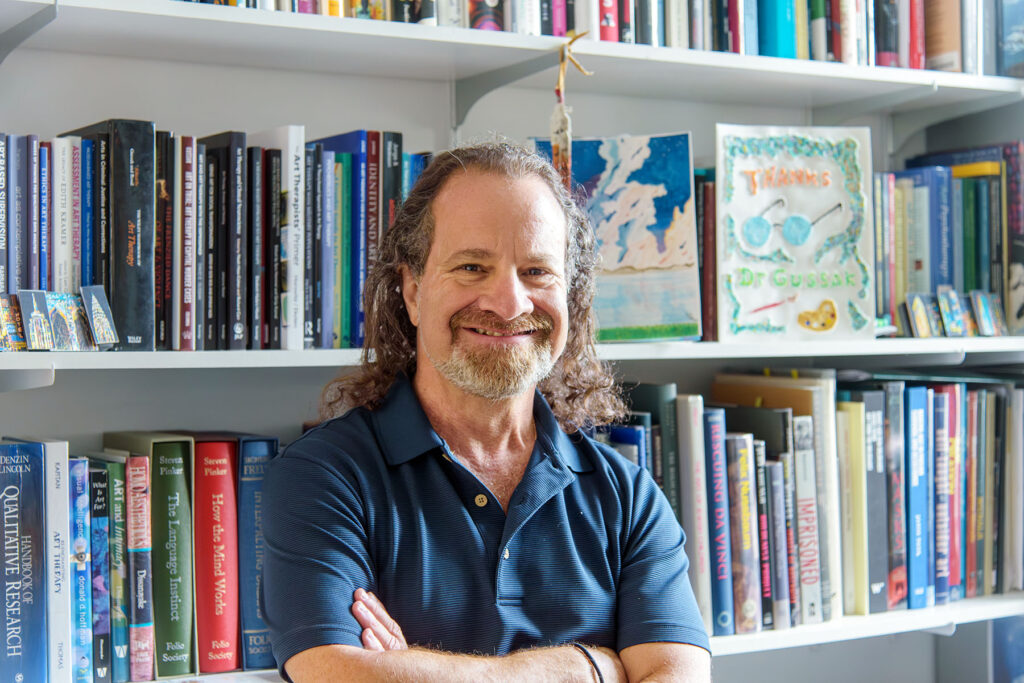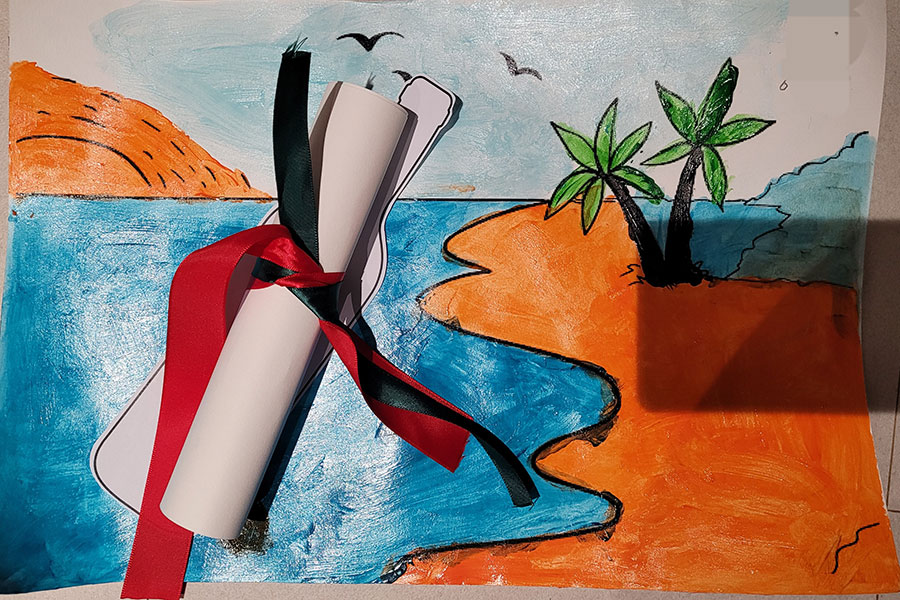
A Florida State University art therapy graduate student is connecting Tallahassee elders with dementia patients in South Korea through letters and paintings, demonstrating art therapy’s role in fostering international understanding.
Brittany Nyberg, a recent graduate of FSU’s Art Therapy Program in the Department of Art Education in the College of Fine Arts, designed the exchange as part of a culminating project focusing on the application of art therapy theory and practice within a particular community or population.
“I wanted to try and apply the concepts I’d been learning for two years to a much broader audience,” she said.
Participants in Tallahassee and at a community center outside Seoul wrote anonymous messages about themselves and paired them with artwork. The messages were then swapped, giving both groups a way to connect through creativity and vulnerability.

“It was a chance for them to feel safe to put a message out in the world,” Nyberg said. “They could talk about something vulnerable without worrying the person reading it would ever know who they are.”
The project highlighted cultural differences in self-expression. Nyberg found that American participants were quick to share personal stories, while South Koreans — more accustomed to collective values — hesitated at first to write about themselves. With guided brainstorming, however, the South Korean elders began opening up, sharing advice rooted in their culture, such as seaweed soup for health or the practice of Taekwondo.
“They really connected to the messages from the U.S.,” Nyberg said. “When they started writing about their own experiences, you could tell they were trying to get something meaningful out of it.”
Dave Gussak, professor of Art Therapy and director of the Institute for the Arts and Art Therapy with the Imprisoned, connected her with colleagues at Seoul Women’s University and the Byeollae Community Service Center, where she carried out the South Korean portion of the project.
Nyberg’s innovative work was also supported by Nancy Gerber, specialized teaching faculty, and Karina Donald, assistant professor, both in FSU’s Art Therapy Program. Donald and Gerber co-teach the culminating project course in the Art Therapy Program. Donald served as Nyberg’s primary advisor on the project.
Beyond the exchange itself, Nyberg said living in Seoul and navigating language barriers deepened her empathy as a therapist.
“Putting myself into that kind of bewildering situation helped me understand the anxiety my patients may feel,” she said.
Nyberg hopes to refine the project and repeat it in the future. “There were a lot of interesting cultural variations that popped up,” she said. “I think it could be even more impactful next time.”
She believes the lessons reach beyond the classroom. “Art and metaphor can transcend verbal communication across borders while still honoring the cultural contexts that shape us,” Nyberg said. “We should be sharing these ideas as much as possible.”
FSU’s Art Therapy Program provides graduates with a master’s degree in art therapy and prepares competent entry level art therapists in the cognitive (knowledge), psychomotor (skills) and affective (behavior learning domains). FSU’s innovative art therapy program integrates theories and research-informed practices to foster culturally sensitive graduates who understand and apply the power of the visual arts and therapeutic relationships to promote personal and community wellness.
To learn more about FSU’s Art Therapy Program, Florida’s only graduate program in Art Therapy, visit ArtEd.fsu.edu.
